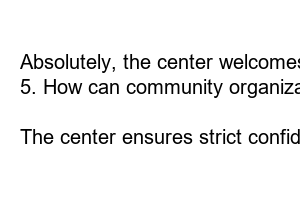아동복지통합서비스 사이버교육센터
Title: Enhancing Child Welfare through the Integrated Service Cyber Education Center
Introduction:
In a rapidly evolving digital age, it is crucial to ensure the safety and well-being of children in virtual spaces. The Child Welfare Integrated Service Cyber Education Center aims to equip parents, caregivers, and professionals with the necessary knowledge and tools to protect children from online dangers. Let’s delve into the significance of this center and how it is transforming child welfare.
1. Empowering Parents and Caregivers:
The Child Welfare Integrated Service Cyber Education Center empowers parents and caregivers by providing them with comprehensive resources to understand the potential risks their children may encounter online. It educates them on effective strategies to monitor and manage their child’s digital activities *proactively*, enabling a safer online environment.
2. Professional Development:
This center also caters to professionals working in the child welfare sector, equipping them with the latest advancements in digital safety and child protection. Through specialized training programs, professionals can enhance their skills in effectively addressing cyberbullying, online predators, and other online threats children may face.
3. Digital Literacy for Children:
Fostering digital literacy among children is crucial in the current age. The cyber education center offers age-appropriate resources and interactive modules, encouraging children to understand the importance of responsible online behavior and recognizing potential dangers. By promoting cyber-safe habits, children are better equipped to protect themselves online.
4. Collaborative Network:
The integrated services provided by the center facilitate collaboration among multiple stakeholders, including law enforcement agencies, educational institutions, mental health professionals, and community organizations. By fostering cooperation and sharing best practices, the center strengthens the collective effort to ensure child welfare in the digital space.
5. Reporting Mechanisms:
To encourage a culture of reporting online abuse and suspicious activities, the center offers comprehensive guidance on reporting mechanisms. By educating parents, caregivers, and professionals on how to identify signs of online exploitation, the center aims to create a proactive response system, swiftly intervening to protect children from potential harm.
6. Continuous Support and Updates:
With ever-evolving threats in the online realm, the child welfare center ensures continuous support and updates to keep parents, caregivers, and professionals informed about emerging risks and preventive measures. By disseminating up-to-date information, the center strengthens the community’s ability to tackle new challenges head-on.
Summary:
The Child Welfare Integrated Service Cyber Education Center plays a pivotal role in enhancing child welfare in the digital era. By empowering parents, equipping professionals, promoting digital literacy, fostering collaboration, establishing reporting mechanisms, and providing continuous support and updates, the center strives to create a safe and secure environment for children online. Together, we can ensure that children are protected from the potential dangers of the digital world.
FAQs:
1. How can parents access the resources provided by the Cyber Education Center?
Parents can access the resources through the center’s website, which contains a wealth of information, interactive modules, and downloadable materials.
2. Are there any costs associated with the center’s services?
No, all the resources and services provided by the center are available free of charge to individuals and organizations committed to child welfare.
3. What are some signs that a child may be experiencing online abuse?
Some signs may include sudden behavioral changes, excessive secretiveness regarding online activities, withdrawal from social interactions, or displaying fear or distress when using digital devices.
4. Can professionals from other fields attend the training programs offered by the center?
Absolutely, the center welcomes professionals from various fields who are involved in ensuring the welfare of children, including teachers, mental health professionals, law enforcement personnel, and more.
5. How can community organizations collaborate with the center?
Community organizations interested in collaborating with the center can reach out through the provided contact information on the website. Partnership opportunities may include hosting joint workshops or sharing resources.
6. What measures are in place to ensure the privacy and security of individuals seeking assistance from the center?
The center ensures strict confidentiality and follows industry-best practices to safeguard the privacy and security of all individuals seeking assistance or utilizing its services.

